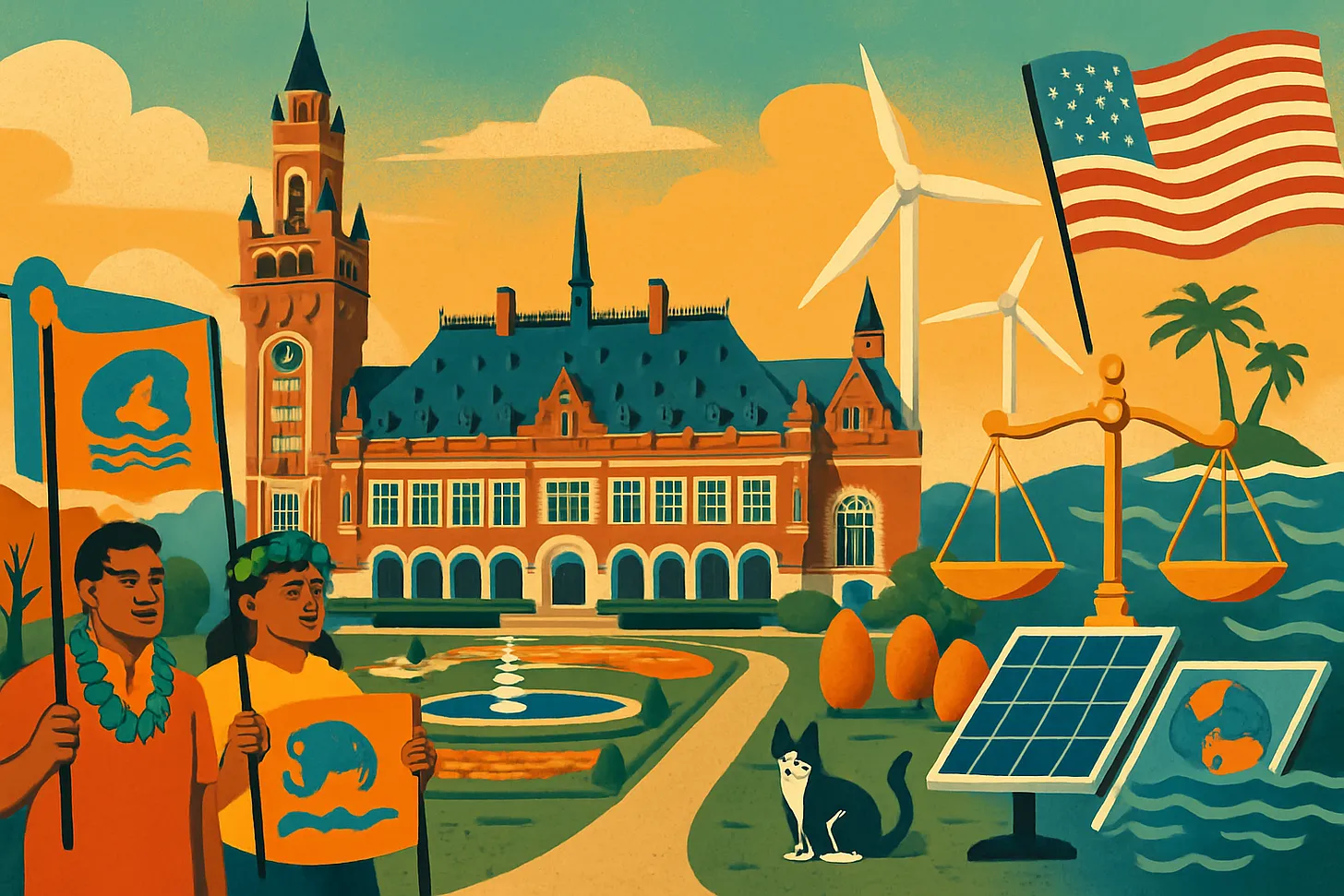While America Abandons Climate Action, the World Court Makes It Law

The $35 student campaign that just made climate denial legally indefensible
25 July 2025
By Alexander Verbeek, Editor, The Planet / Policy Director EDRC
When I hear American friends talk about feeling helpless in the face of climate change, I often respond by sharing with them how much I admire young people who take a stand against climate change. They are far more alarmed than those in political power. It’s obvious they have a longer perspective, which is further lengthened by the possibility of having children someday.
A beautiful example of young people taking climate action is given by Cynthia Houniuhi and 26 other law students. In 2019, during a university lecture in Fiji, their professor challenged the students to promote climate justice. Most of them would have organized a campus event or written a paper; these Pacific Island students decided to take on the world’s most powerful governments at the highest court on Earth. They started with nothing but a huge ambition and a crowdfunded amount equivalent to $ 35, which they used to buy their first banner.
This week, that campaign delivered the biggest climate victory in international law. The International Court of Justice unanimously ruled that climate change “imperils all forms of life” and countries must tackle the problem or face consequences under international law. The decision opens the door for climate-vulnerable nations to sue major emitting countries for reparations and gives citizens everywhere new tools to hold their governments accountable.
The decision comes as the United States retreats from climate leadership, just when the legal and economic case for action has never been clearer. The International Court of Justice places legal responsibility on countries for climate change at the exact moment the United States not only pulls back from action but actively denies responsibility. The Trump administration’s moves represent the extreme opposite of what the world’s highest court stands for. While students in the Pacific fight for their survival, the U.S. government has drafted a plan to repeal the fundamental scientific finding that gives the United States government its authority to regulate greenhouse gas emissions and combat climate change.
The David and Goliath Victory
Cynthia Houniuhi remembers her childhood growing up in one of the remotest parts of the Solomon Islands, wading through warm seas to get to school and sowing sweet potatoes with her family. She also recalls visiting her father’s island of Fanalei and being shocked to see houses standing deep in salt water, families forced to move by the rising seas. Journalist Isabella Kaminski beautifully described Houniuhi’s life in the Solomon Islands in her BBC reporting, which traces the origins of this legal case.
When lecturer Justin Rose tasked Houniuhi’s class at the University of the South Pacific with promoting climate justice, one idea they considered was seeking an advisory opinion from the International Court of Justice. Houniuhi was hesitant at first, thinking the idea was far too ambitious for a small group of students from the Pacific region. But she felt a sense of responsibility for her community on the frontlines of climate change.
“What is the use of learning all this knowledge if it’s not for our people to fight the single greatest threat to their security?” she asked herself. The 27 students formed Pacific Island Students Fighting Climate Change, with Houniuhi as president, and began what seemed like an impossible campaign.